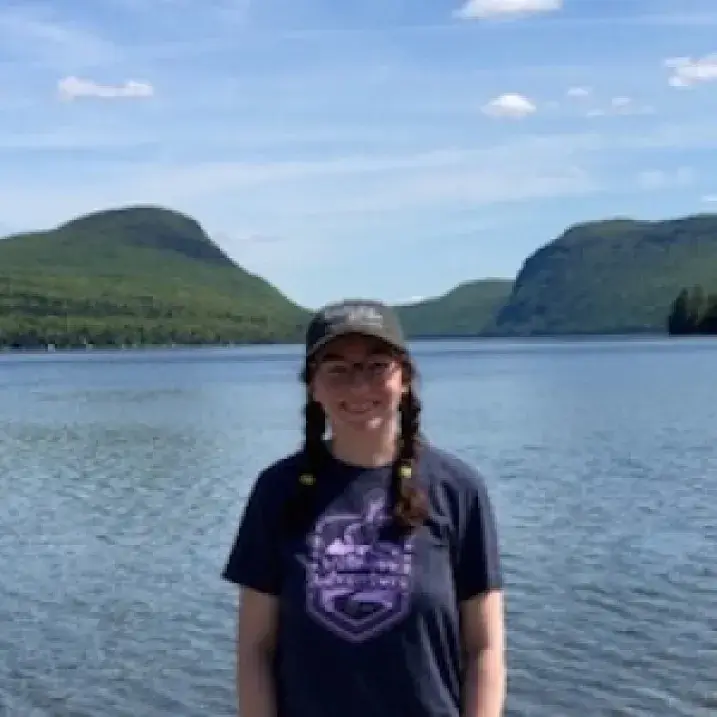BIO
I’m originally from the suburbs of Connecticut, and got my love for science and lab work through an internship-based class in high school, where I got to work under a graduate student at UConn in a microbiology lab. Following this experience, I attended Oberlin College, where I received my B.A. in Biology. During my time at Oberlin, I spent many weekends and school breaks with my hands in the dirt, farming. This pursuit made me fall in love with plants and biology even more, and motivated me to seek opportunities at the intersection of agriculture and biology. This led me to an internship at The Land Institute after graduating from Oberlin, where I fell in love with prairie grasses and the idea of regenerative agriculture. Today I am grateful to still be studying agriculturally important grasses, now here at UVM in the Preston Lab and as an NSF QuEST Trainee. In addition to research, I enjoy fiber arts, cooking, hiking, and kayaking.
My research is focused on the genetic pathways that regulate grass flowering, in a temperate group of species that includes wheat, barley, and rye. These species have several cold temperature-induced genetic pathways, including the vernalization response. This response allows grasses to survive the winter and flower in spring, after the threat of freezing temperatures has passed. I study the reversal of this response: devernalization. This has exciting agricultural and climate change implications for future breeding of resilient crops.
Bio
I’m originally from the suburbs of Connecticut, and got my love for science and lab work through an internship-based class in high school, where I got to work under a graduate student at UConn in a microbiology lab. Following this experience, I attended Oberlin College, where I received my B.A. in Biology. During my time at Oberlin, I spent many weekends and school breaks with my hands in the dirt, farming. This pursuit made me fall in love with plants and biology even more, and motivated me to seek opportunities at the intersection of agriculture and biology. This led me to an internship at The Land Institute after graduating from Oberlin, where I fell in love with prairie grasses and the idea of regenerative agriculture. Today I am grateful to still be studying agriculturally important grasses, now here at UVM in the Preston Lab and as an NSF QuEST Trainee. In addition to research, I enjoy fiber arts, cooking, hiking, and kayaking.
My research is focused on the genetic pathways that regulate grass flowering, in a temperate group of species that includes wheat, barley, and rye. These species have several cold temperature-induced genetic pathways, including the vernalization response. This response allows grasses to survive the winter and flower in spring, after the threat of freezing temperatures has passed. I study the reversal of this response: devernalization. This has exciting agricultural and climate change implications for future breeding of resilient crops.
